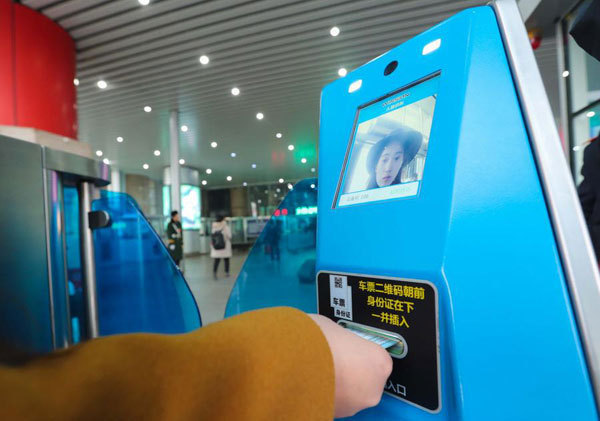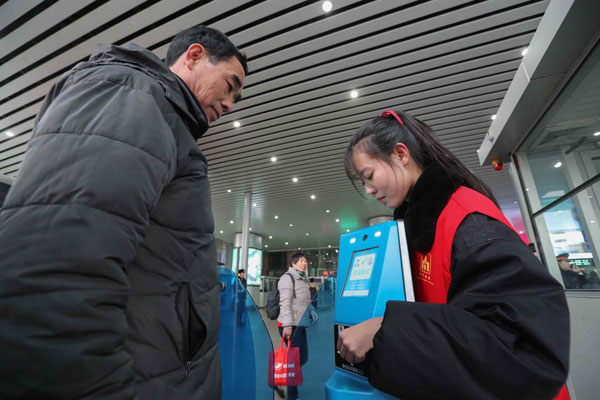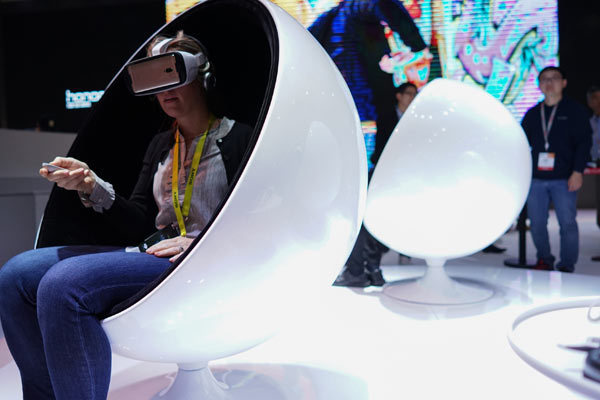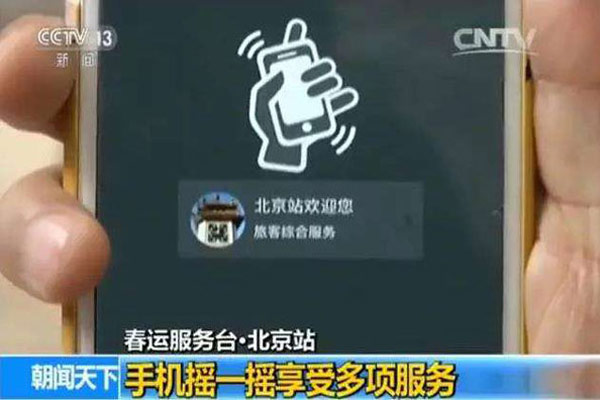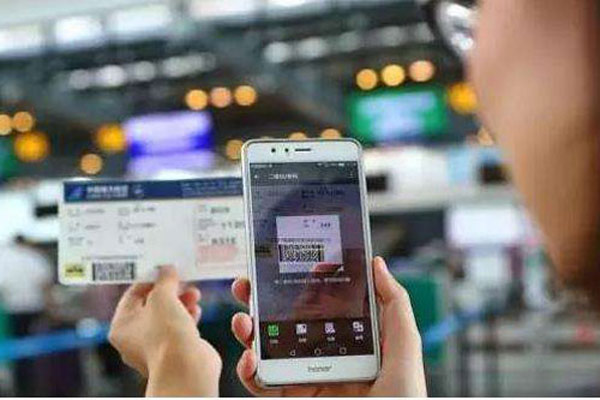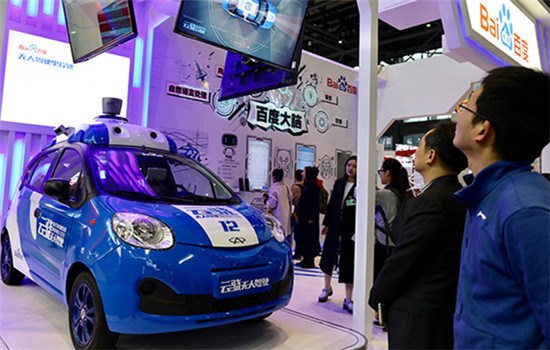A passenger uses a face recognition machine to get into the Beijing West Railway Station on Jan 17, 2017. [Photo/Xinhua]
Face recognition, smart robots and virtual reality are some of the new technologies that have been widely used for this year's travel rush during Spring Festival, or chunyun, between Jan 13 and Feb 21.
Face recognition machines have been added so passengers can quickly pass through railway stations in many cities, such as Beijing, Shanghai, Guangzhou, Zhengzhou, Taiyuan, Wuhan, Nanchang, Xi'an and Changsha.
These machines allow passengers to check their tickets by themselves while passing the safety-check gates, which takes each person only three to six seconds.
1. Face recognition
A worker shows a passenger how to use the face recognition machine at the Beijing West Railway Station on Jan 17, 2017. [Photo/Xinhua]
Passengers must remove masks, hats and sunglasses before using the self-service machines to match their faces with ID cards.
According to a manager at Beijing West Railway Station, there have been a few problems due to passengers looking much different from older ID cards.
"Light makeup would not influence the recognition," the manager said. However, he admitted it is unclear whether the machine could recognize people who have undergone plastic surgery.
At the railway stations in Xi'an, capital of Shaanxi province, some passengers were not recognized by the machines because they shaved their heads bald, according to a report by Chinese Business View, a Shaanxi provincial newspaper.
Plastic surgery, makeup and aging have been the typical problems in the biological recognition field, said Xun Yang, an expert in the field. The application of big data and artificial intelligence has eased problem, he said.
Eye wrinkle detectors and voiceprint recognition technologies are used for identifying twins and people who have had major plastic surgery changes, Xun said.
2. Virtual reality
Visitors try VR tech of Chinese company Huawei Technologies Co Ltd at the Consumer Electronics Show in Las Vegas. (Photo/Xinhua)
Wuhan railway stations used virtual reality technology on their Sina Weibo and WeChat accounts to allow passengers to virtually experience entering the stations, passing through the gates and getting to the waiting rooms and platforms.3. Smart robots
Smart robots have been used at railway stations in Guangdong province, providing passengers with information pertaining to train schedules, tickets and directions. The robots even sing and dance, if asked to do so by a customer.
4. Shake your cellphone and find useful info
"Shake" service of Wechat used by passengers at Beijing Railway Station. [Photo/cctv.com]
Passengers can use the "shake" service of WeChat on mobile phones to get a service interface that offers passengers information related to waiting rooms, train schedules, lost items, wheelchair services and luggage check-in at the Beijing Railway Station.
5. Bar code
Passenger scanning the bar code on her Boarding Pass to see details and updates about her flight. [Photo/cctv.com]
Services at airports have also been improved with smart technology. South China Airlines passengers can get detailed information and updates regarding their flights simply by scanning the bar code on their boarding pass.
6. 12306.cn for booking tickets online
Besides these applications of new technologies, more technologies are being adopted to make trips much easier for travelers.
Traveling by train is the most popular means for people during chunyun. Many tech firms, especially online travel agencies such as Ctrip and Qunar, have rolled out special services to help buyers improve their odds of getting a ticket.
But when millions of people try to get a ticket by logging onto the official online railway ticket booking website www.12306.cn at the same time, it's a big burden for the website.
However, no major glitches have been reported so far, thanks to the help of Alibaba, which uses its cloud computing technology to help deal with the flood of web traffic.
7. Baidu mapping service
Those driving home or taking buses can get real-time information on road traffic conditions and bad weather notices to help with their planning.
The service is provided by search engine giant Baidu, which uses its sophisticated mapping service in partnership with the transport research institute under the Ministry of Public Security.
8. Ride-sharing also a choice
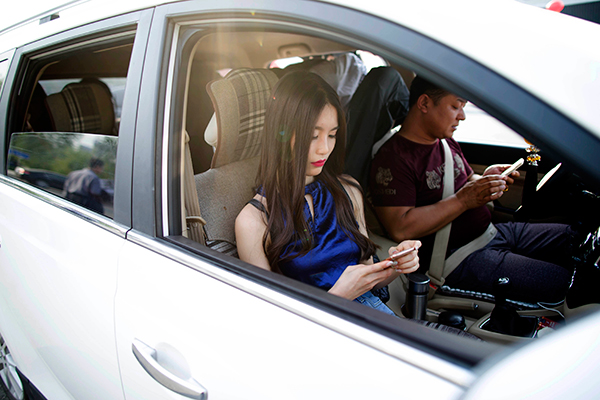
For those who have difficulty getting rail, flight or bus tickets, the ride-sharing platform Didi Chuxing is offering a new way home.
Didi is asking for private car owners driving home this year to share vacant seats with those on similar routes, and they will use the data to match the demands of drivers and passengers.


















